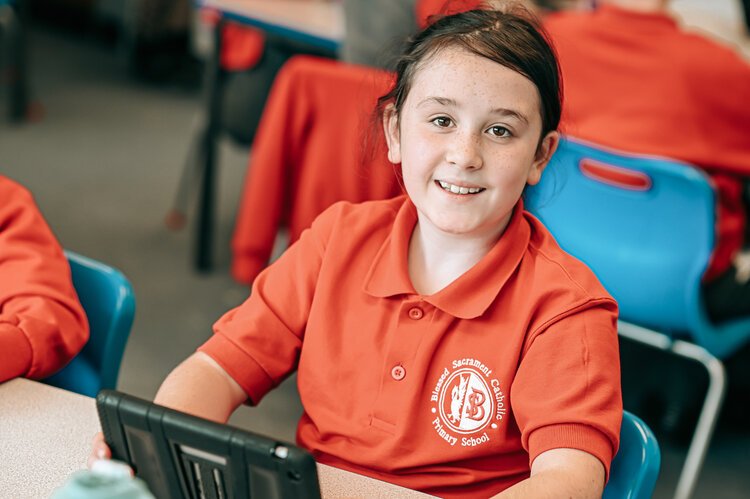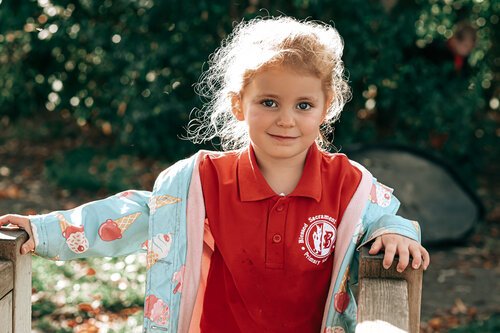
Mental Health & Well-Being
Mental Health and Well-Being approach in our school.
We are so happy and excited to share our whole school response to Social, Emotional, Mental Health and Well Being needs across Blessed Sacrament.
ROAR was created in response to a city-wide review of whole school approaches to mental health, here at Blessed Sacrament we began our ROAR journey in June 2017 and were recognised as one of the Trailblazer schools who were demonstrating excellent practice. It was highlighted that staff should focus on recognising the signs of poor mental health. The ROAR response aims to do just this. The ROAR response to Mental Health in Primary Schools allows all school staff to recognise and address the signs of difficult mental health in children. It is a first line response aimed at equipping school staff with the tools to provide early intervention and support to children experiencing mental distress. ROAR also encourages and helps children build resilience in relation to their mental health needs. ROAR also supports children with English as an additional language, helping to give them a voice by helping them to build the vocabulary around their emotional wellbeing.
The ROAR approach has been implemented within school and is proving to be a great success. ROAR is used to respond to the mental health needs of children and the school community, from Nursery all the way to Year 6.
To find out more, watch how staff and pupils at Blessed Sacrament Primary School have embraced the ROAR approach throughout the school, in everyday life.
Make it stand out.
INTRODUCE YOUR BRAND
Well-Being Documents
5 ways to wellbeing
Here at Blessed Sacrament we have an enthusiastic and committed wellbeing team. Our aim is to make our school the best it possibly can be for the children, staff and parents. We actively promote the five ways to wellbeing, which are:
Connect
Be active
Take notice
Keep learning
Give
Our wellbeing team is made up of children, parents, teachers, teaching assistants, SLT and governors. We meet regularly to discuss ways we can improve the mental health and wellbeing of our school community. If you have any ideas about how we can improve the wellbeing of our children please feel free to share your ideas with one of the team!
Useful links
To find out more about how to help someone close to you, visit:
https://ehd.liverpool.gov.uk/kb5/liverpool/fsd/service.page?id=vpt5pUMEYZw
https://www.counterterrorism.police.uk/actearlypartners/
Get help if you’re worried about someone being radicalised - GOV.UK (www.gov.uk)
Young Carers
A ‘Young Carer’ is someone aged 18 or under who helps to look after a relative with a disability, illness, mental health condition or an addiction. If you are a young carer you probably look after one of your parents or care for a brother or sister.
If you are a Young Carer or know somebody who is a Young Carer, there is lots of help and support you can access. To learn more or if you have any concerns ask to speak to our Young Carer Champion (Mrs Edwards) or contact one of the organisations below who will be happy to help.
Rockets
Some of our year 5 and year 6 children spent a day with MYA (Merseyside Youth Association) receiving peer mediation training. The idea was that we would have a group of children who could support their peers during lunchtime if they were feeling worried or anxious about anything. The children come up with the name ROCKET for the group which stands for:
R - Resilience
O - Open
C - Caring
K - Kind
E - Empathy
T - Togetherness
The children will be wearing blue hoodies so they stand out during playtime and are easy to identify.
Domestic Abuse
While all public services are adapting to new ways of working during this pandemic, our message to anyone who is experiencing domestic abuse is clear: You are not alone and you don’t have to suffer in silence – we will still be here for you, no matter what.
Liverpool City Council, Merseyside Police, Local Authorities and providers of domestic abuse support across Merseyside will continue working together to maintain essential services and contacts for anyone affected by domestic abuse during the weeks and months to come.
Support will still be available by telephone, text message or online services.
Who to contact?
If you, your child or anyone in the family are at immediate risk of harm, you should contact the police urgently, CALL 999
Police guidance on the ‘999 silent solution’ call:
The 999 call system allows all 999 callers to access support if they are unable to speak during the call. It is important that either a noise is made or that 55 is pressed. For example, if you can only make noise, such as tapping the handset, coughing, crying or even talking to the offender, then these actions will alert the attention of the BT operator.
The Police Force and specially trained officers are still there for people during the lockdown.
Support for children:
Young Persons Advisory Service (YPAS) 0151 707 1025
NSPCC
Support for men:
Men’s Advice Line (Freephone) 0808 801 0327
Further support can also be found at these national agencies:
Women’s Aid | womensaid.org.uk | https://www.womensaid.org.uk/information-support/
National Domestic Violence Helpline: 0808 2000 247 (24 hours)
Refuge (includes information for men) | refuge.org.uk | 0808 200 0247 (24 hours)
National LGBT+ Domestic Abuse Helpline – 0800 999 5428
Further support:
In an emergency always, ring 999. Using a silent 999 call followed by 55 (or tapping/coughing into the phone) will enable police to respond.
National Domestic Abuse 24 hour Support Helpline: 0808 2000 247
RESPECT National Helpline, perpetrators (9am to 5pm): 0808 802 4040
https://www.victimcaremerseyside.org/home/who-can-help.aspx
http://respect.uk.net/contact-us/
Or ring:
Liverpool Domestic Abuse Services 0151 263 7474
Merseyside Domestic Violence Service 0780 272 2703
South Liverpool Domestic Abuse Services 0151 494 2222
Ruby Project 0771 428 9180
Savera UK (honour based abuse & harmful practice specialist) 0800 107 0726
Worst Kept Secret Helpline (Merseyside) 0800 028 3398






